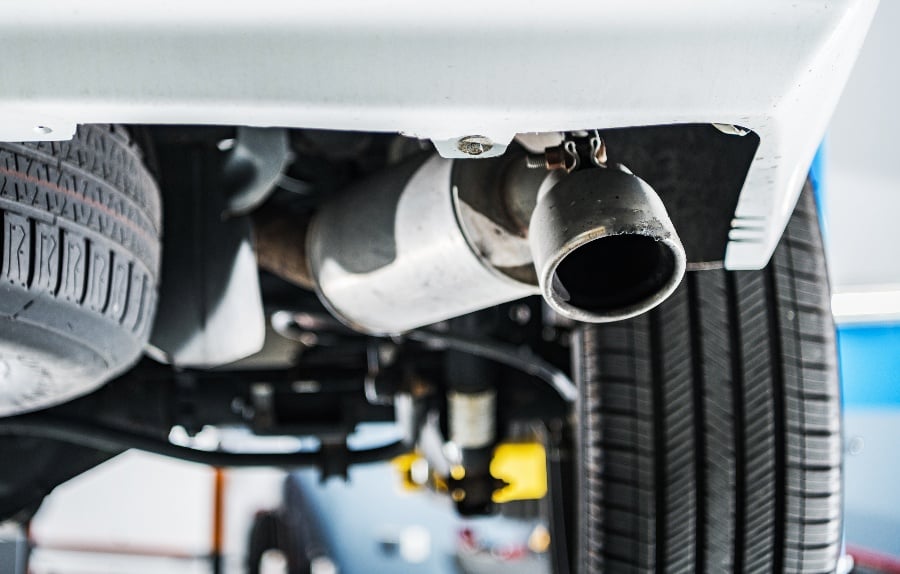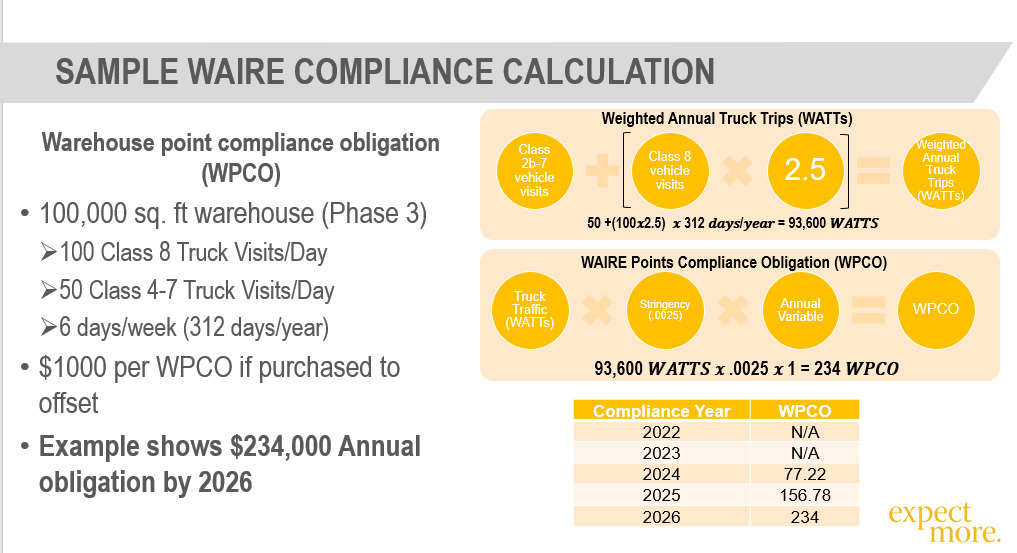Use Dock Scheduling To Stay Ahead Of New Emissions Regulations

A new regulation has come into effect in California that requires warehouse operators to count the number of trucks coming and going from their facilities.
Rule 2305, also known as the Warehouse Indirect Source Rule (ISR), requires companies operating a warehouse or distribution centre larger than 100,000 square feet to record and retain data about the trucks arriving at and leaving their premises.
The rule requires the warehouse operators to record the number of truck visits, the asset class and fuel type and the dwell time.
It applies within the South Coast Air Quality Management District (South Coast AQMD), which is the regulatory agency responsible for improving air quality for large areas of Los Angeles, Orange, Riverside and San Bernardino counties, including the Coachella Valley.
Why is the district applying this rule?
With all the heavy-duty trucks coming and going, along with other sources of emissions like cargo handling equipment, they are significant contributors to local pollution.
Emissions from sources associated with warehouses account for almost as much NOx emissions as all of the refineries, power plants and other stationary sources in the South Coast Air Basin combined, the agency said.
Those living within a half mile of warehouses are more likely to have higher rates of asthma and heart attacks and must endure a greater environmental burden.
The rule is expected to reduce smog-forming emissions by 10-15 percent from warehouse-related sources.
Encouraging zero-emissions trucks
The rule works on a points system that penalizes diesel truck arrivals and rewards zero-emission transportation.
It is intended to incentivize warehouse operators to build charging infrastructure so that electric trucks can use their facilities.
Warehouses that do not comply with the rule face monetary penalties that could amount to US$11,710 per day.
Of the 2,000 warehouses in the region that the rule applies to, more than two-thirds are non-compliant, according to the South Coast AQMD.
 Source: https://revel-energy.com/solutions-for-warehouses-scaqmd-isr-2305/
Source: https://revel-energy.com/solutions-for-warehouses-scaqmd-isr-2305/
Taking reservations to track trucks
That’s a heavy cost for those warehouses, yet it could be so easy for them to start tracking their trucks.
With a cloud-based software solution like C3 Reservations, they would have all the information about the trucks coming and going from their facilities right at their fingertips.
It’s dock scheduling software, and it’s designed to help manage the flow of vehicles into your facility.
For the warehouses trying to comply with Rule 2305 by using paper or a spreadsheet to track their truck arrivals, adopting cloud-based C3 Reservations dock scheduling would streamline not only their compliance with the regulation, it would also deliver numerous other benefits to their operation.
For the truck reporting, the system will automatically know what trucks are coming in, meaning the warehouse manager responsible for compliance would just have to check with the software to generate that list.
No more keeping track of each truck in a spreadsheet or on paper. No more chance of missing an entry because it’s all automated. No more worry about that aspect of the job, and no more concern about non-compliance penalties.
Multiple benefits
And the other benefits include being better able to manage your warehouse operation. With C3 Reservations, you know exactly when a truck is coming and what good are arriving at your docks.
That means you have better control over your inventory, and can pre-plan exactly where that inventory is going to go, whether into racking or cross-docked and moved on to its final destination.
It also means you will know what resources you need at the dock and when they need to be there. You’ll be able to schedule your labour and equipment to be ready just as the truck rolls in. That avoids wasted time and equipment idling.
Dock scheduling helps to avoid congestion in your yard, as trucks now won’t need to wait to load or unload.
Plus, carriers can set their own appointments using the online portal at any time of day or night, which removes the chore from your staff, and streamlines the process for everybody. Appointments are confirmed automatically either in the portal or by email.
Good for the environment
By using C3 Reservations, companies also realize green goals. Reducing wasted time and resources has delivers environmental benefits.
Eliminating idling time by having trucks roll right to the docks instead of waiting is another.
And that dovetails nicely with the California air quality case study we looked at here.
Compliance with regulations such as the Warehouse Indirect Source Rule may not be the first reason you’d come up with to implement dock scheduling, but in this case it is a compelling one.
And, given the potential for a positive impact on the environment, adopting C3 Reservations can be a change for good.

